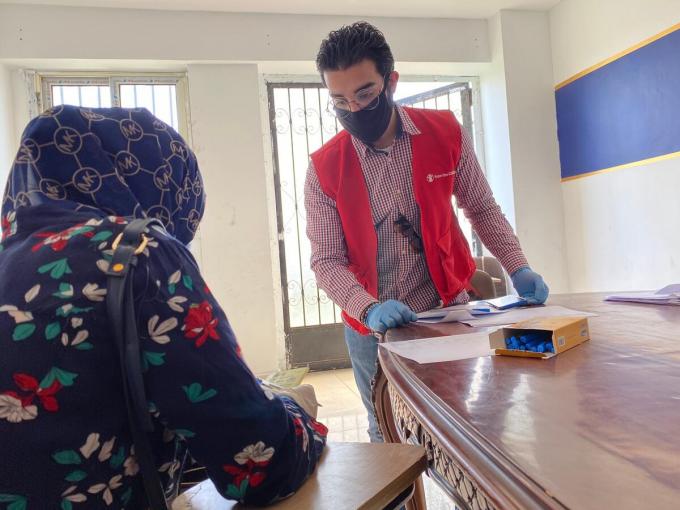Soad’s story: How has Covid-19 changed the lives of refugee families in Egypt?

Soad*, a Syrian primary school teacher living in Cairo, could never have prepared herself for the current COVID-19 crisis. Like many mothers, Soad struggled to find sufficient hygiene and sterilization products after panic buying resulted in shortages and over-pricing.
According to Soad, there are also shortages of food and education supplies in the market. Supermarkets in her neighborhood ran out of cleaning products, while the prices of necessary
supplies soared. She says that after several attempts to purchase goods for her home she felt completely hopeless. This changed when Soad was able to secure hygiene kits containing soap, disinfectants and hand sanitizer distributed by Save the Children. “The hygiene kits provided were essential for my children and husband to stay safe during the COVID-19 outbreak. My children are happy to have their own kits and are now encouraged more than ever to wash their hands on a regular basis.”
We conducted a rapid need assessment among Syrian and African refugees in Giza governorate in order to identify the most crucial supports needed during this critical situation. This assessment found that all refugees were aware of and keen to follow WHO’s health recommendations and precautions. However, due to financial challenges and limited resources, they are unable to buy cleaning and hygiene materials. In order to meet these needs, we distributed hygiene kits to refugee families, youth and unaccompanied children in Greater Cairo.
Soad’s* husband was out of work for three weeks, which aggravated the stress felt by the family. His employer eventually recalled him for work, but at a reduced salary. Save the Children Egypt also distributed education kits among Syrian and African refugee children, including Soad’s family. These kits included art materials and supplies to families who asked for ways that they could encourage learning and entertainment for their children, amidst the stresses caused by the COVID-19 lockdown.
Egypt is currently home to over 258,816 refugees and asylum seekers from 58 different countries, 4,600 of whom are unaccompanied and separated asylum seeking and migrant children (UASC). Prior to the COVID-19 outbreak, these were among the most vulnerable children in the country; at the time of writing, we have already seen a rise protection and health risks as tensions in host communities rise. Save the Children is also concerned that many families in Egypt will resort to negative coping strategies as economic conditions worsen, such as child marriage and child labour.
“The situation is now challenging for everyone,” notes Soad. “We need financial support, summer clothes for our children and vouchers to buy essential food for them. This is the first time for our children be at home for so long, and the entertaining activities provided by Save the Children were important for their well-being.”
 Egypt
Egypt